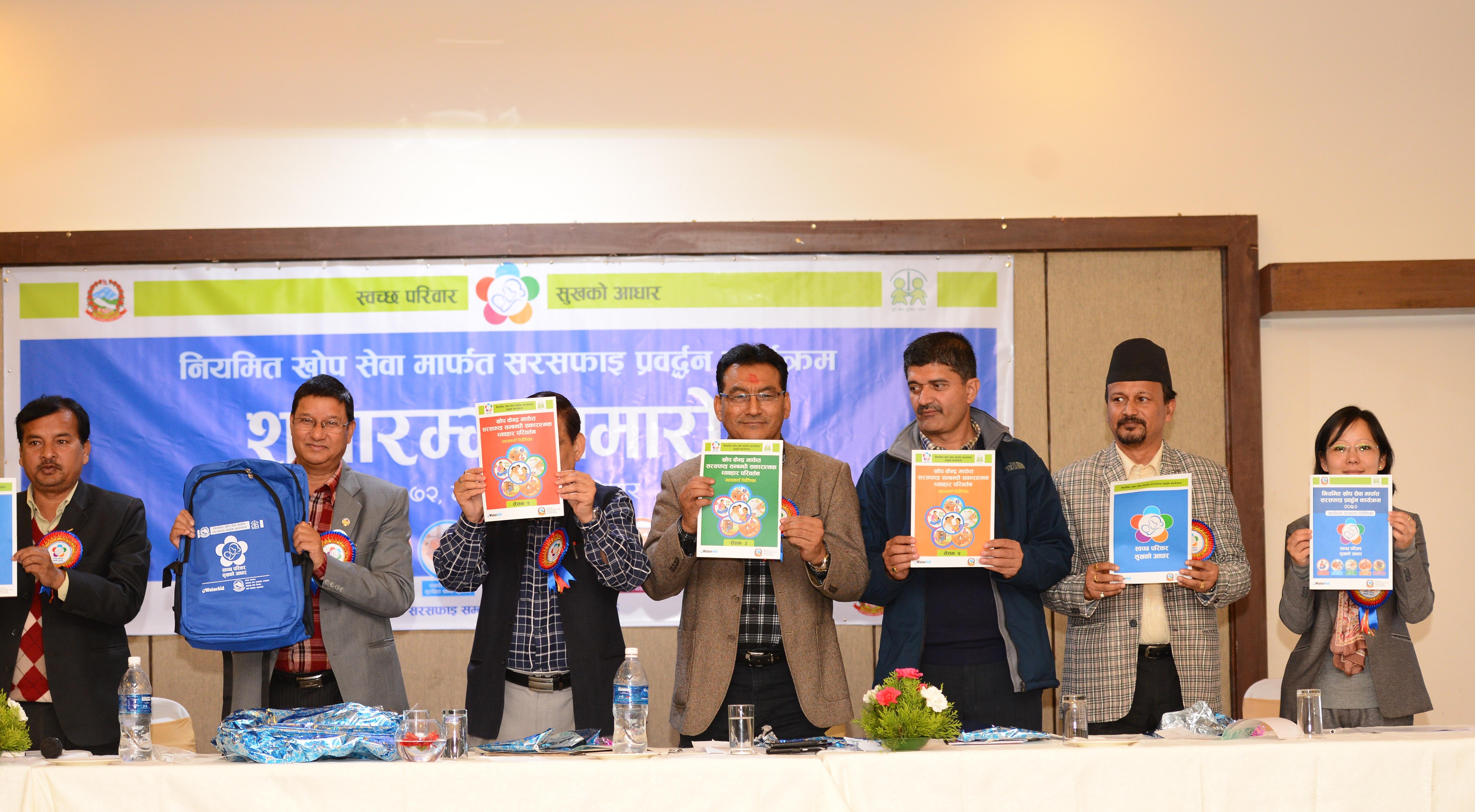Nepal Pilot Launches

L-R: State Minister MoHP, Honorable Minister MoHP, Director General MoHP, Health Secretary, Ministry of Education Rep, Joint Secretary of the National Planning Commission, WaterAid Nepal Country Rep.
Credit: WaterAid Nepal/Mani Karmacharya
Earlier this month, an exciting new pilot project investigating whether hygiene promotion can be integrated into routine immunisation programmes got underway in four districts of Nepal.
The innovative pilot is a joint initiative between WaterAid UK and Nepal’s Ministry of Health and Population (Child Health Division) (MoHP) and is specifically seeking to answer following questions:
- Is it feasible to integrate hygiene promotion through routine immunisation via normal service delivery mechanisms?
- Does integration secure benefits to immunisation and achievement of hygiene behaviours?
- Is the integration approach cost effective?
- Does the integration approach build the capacity of health workers and female community health volunteers?
- Is integration feasible for nation-wide scale-up?
Creativity at its best
The year-long pilot is targeting 35,000 mothers/guardians of infants aged 0-12 months and is taking place in four rural districts of Nepal: Bardiya, Jajarkot, Myagdi and Nawalparasi. The pilot will see 2,200 trained and skilled female community health volunteers, supported by 1,200 health workers, deliver hygiene promotion sessions to mothers/guardians when they attend an immunisation clinic for their child to be vaccinated. Each mother/guardian will attend at least five sessions where they will be exposed to a package of fun games, competitions, pubic pledging and participatory activities.
This hygiene promotion package, comprising of a mix of innovative tools and novel approaches, was designed through a creative process, informed by formative research and a previous behaviour change trial. It focusses on improving five key behaviours:
- Exclusive breastfeeding up to six months
- Food hygiene
- Handwashing with soap
- Water/milk treatment
- Hygienic use of toilets and safe disposal of child faeces
To improve these behaviours, the intervention will draw on proven emotional drivers including: nurture, affiliation, disgust and social status/respect. The whole campaign has its own identity and branding, and seeks to inspire amongst the target population a desire to attain an ‘ideal family’ by practising the above-mentioned five key behaviours.
Ascertaining impact
The effect of the intervention will be assessed through an independent evaluation comparing observed behaviours, routine immunisation status, cost per vaccination per child etc. at baseline and follow-up within the intervention group, and compliance measurements will be recorded through the routine immunisation reporting mechanism. These will also be complemented by a process evaluation.
The launch of this operational project is a significant achievement for all involved as the first investigation into whether vaccination programmes offer a useful entry point for hygiene promotion took place back in 2012. The pilot is thus a great example of how research findings can be used for tangible programming.
It is also envisaged that the pilot will demonstrate how:
- Real integration should happen on the ground
- Hygiene behaviour change can be integrated into health and nutrition agendas
- A behaviour change campaign can be designed to be delivered through normal service delivery mechanisms
The lessons learned from this pilot potentially have far-reaching implications for hygiene improvement interventions globally, and we very much look forward to hearing about these as they emerge.
Congratulations to all involved!
